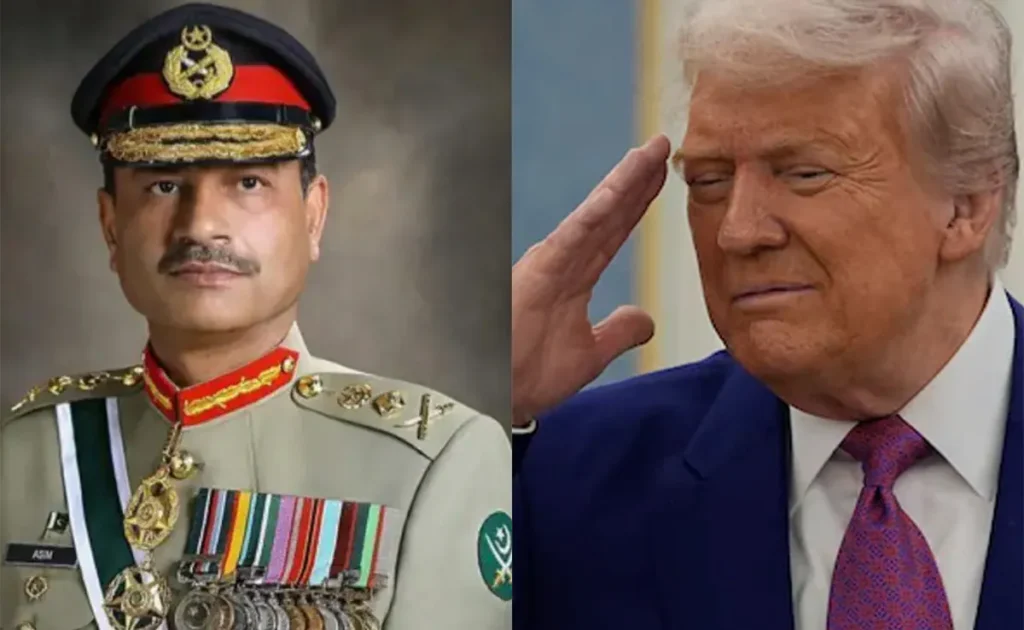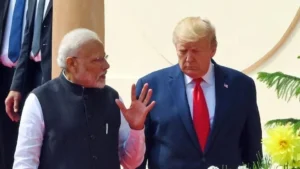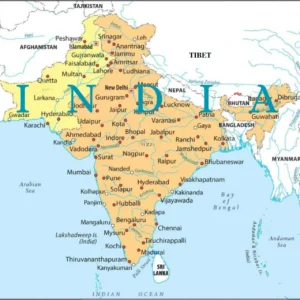Superpower or Softpower? Trump’s White House Hosts a General from Terror-Tied Nation
20 June 2025
A nation that once took pride in promoting democracy and isolating terror-linked regimes now invites the Pakistani Army Chief for lunch at the White House — an act that is not just unusual but deeply concerning and shameful.
Where diplomatic protocol once symbolized strength, the U.S. President hosting the military head of a country that has been consistently linked to terrorism for years is no longer just diplomacy — it is a sign of Donald Trump’s weakness, perhaps even submission.
This doesn’t feel like a strategic move; it feels like a compromise, and possibly capitulation. For the first time, it appears that America is no longer leading the world — it is bargaining with its own core principles.
The Lunch That Shamed the White House: Breaking Diplomatic Integrity
Traditionally, the White House has been a stage reserved for the presidents, prime ministers, and foreign ministers of democratic nations — individuals who embody their Citizens through electoral legitimacy and political Liability. Welcoming them is not just a diplomatic courtesy, but a symbolic recognition of their country’s democratic standing and global role.
But when a military chief — someone unelected, answerable to the public, and speaking for an institution often accused of undermining democracy — is invited to that same table, it indicates more than a break from tradition. It delivers a dangerous message: that raw military leverage is now being equated with diplomatic credibility.
Rarely, if ever, has a serving military official from a nation with such a controversial international image been granted this kind of diplomatic stage at the White House. This isn’t just breaking protocol — it’s redefining it, and doing so for figures whose role within their own country is already under global scrutiny.
And this act hasn’t just left a stain on Donald Trump’s personal judgment — it has smeared the dignity and reputation of the White House itself.
A Superpower Seeking Favors? Why Is America Turning to Pakistan?
Has America truly been reduced to a soft power — one that now needs the help of a military general from a terror-linked state? Russia has been entangled in war for over three years, and China is watching from the sidelines, asserting its influence quietly. So why now? Why did the United States feel the urgent need to summon Pakistan’s Army Chief — not just for a strategic talk, but for a White House lunch?
Is Washington so desperate for regional leverage in South Asia that it’s ready to erase its own red lines? Or has global diplomacy entered such a morally flexible phase that hosting an unelected general from a nation accused of harboring terrorism is now seen as “normal”?
Whatever the reason — it raises a dark, uncomfortable question:
Has America, once the torchbearer of democratic values, now become a softpower that bows behind closed doors?
Pakistan which has been sheltering militants for a long time — from sheltering Osama bin Laden, maintaining ties with the Taliban, and spending years on the FATF grey list, to most recently orchestrating the killing of innocent tourists in Pahalgam, India — continues to defy international norms. Inviting the Pakistani Army Chief to the White House is not only a morally questionable decision but also generates Grave concerns about America’s strategic priorities. Is this a desperate attempt by Trump to balance China and Russia’s growing influence, or a sign of America’s waning diplomatic power? Both Nationally and internationally this move has drawn Condemnation for breaking long-standing traditions and Indicating that democratic values are no longer the driving force — strategic convenience is. This moment could mark the beginning of a new global shift — where superpowers no longer lead by principle, but by compromise.





